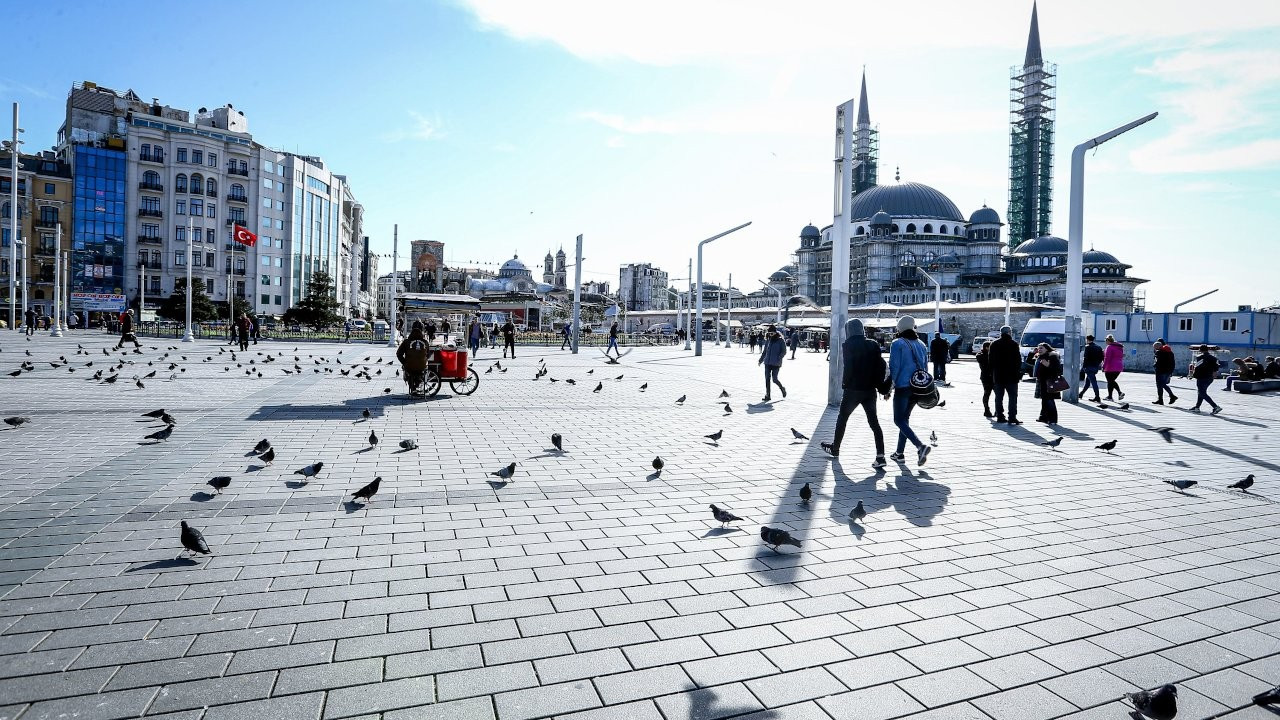Turkey announces minimum wage, but discussions far from over
Union leaders and workers are deeply disappointed by the newly announced minimum wage, as they accused the government of siding with the rich rather than the working class.
K. Murat Yıldız / Duvar English
Turkey's new minimum wage of 2,825 Turkish Liras ($377) was announced by Family and Social Policies Minister Zehra Zümrüt Selçuk following the fourth and final meeting of the Minimum Wage Commission on Dec. 28, yet discussions are far from over.
Workers unions and opposition parties announced earlier that any wage below 3,000 liras would not be acceptable. Additionally, a large number of mayors from opposition-controlled municipalities announced minimum wages above the new amount as well as new bonuses for workers.
'I was wrong!'
“When I saw the minimum wages and bonuses announced by opposition mayors on the news and social media, I really thought the government and President Recep Tayyip Erdoğan's amount would not be much lower," a minimum wage worker from Istanbul told Duvar English.
He continued citing his reasons for thinking the government's minimum wage would be higher, saying, "We know about the rise in countrywide popularity of Istanbul Mayor Ekrem İmamoğlu and Ankara Mayor Mansur Yavaş, who many consider potential challengers to Erdoğan in the upcoming presidential elections. So, I was sure the president would do everything in his power to come up with an offer higher than they did. But, I was wrong.”
Not everyone was as optimistic before the announcement.
The government's priority has never been the working class
“We are aware of the ruling party's 18-year track record when it comes to the minimum wage. Their priority has never been the working class. Not only in terms of the minimum wage but also in their general economic policies and priorities,” Food Workers Union (Gıda-İş) chair Seyit Aslan told Duvar English.
Aslan also believes that the minimum wage commission was openly threatened by The Union of Chambers and Commodity Exchanges (TOBB) and other businesses interested in keeping wages low. He said that for such organizations a rise in the minimum wage "would lead to problems in employment. This is very much in line with the government's belief that cheap labor in Turkey creates competitiveness on an international level and attracts foreign investment.”
He elaborated on the challenges workers in Turkey face, saying, “Only 7.5 percent of workers are members of unions. The remaining 92.5 percent have no basis to bargain. Turkey is a cheap labor market because of that. Basic rights such as strikes are even limited for union member workers. Workers have lost nearly 50 percent of their income since the start of the pandemic.”
Aslan concluded suggesting that the working class and unions "work harder on these issues."
Experts point out that a worker on minimum wage must work 122 days just to cover taxes they have to pay to the state.
More than 3 million families have no electricity
“There are more than 3 million families in Turkey who have no electricity at the moment due to unpaid bills. I'm not even talking about gas for heating as these have become a luxury for many” main opposition CHP Istanbul MP Gürsel Tekin told Duvar English.
Government on the side of the rich
“The government once more showed that they are on the side of the rich, not the people struggling against the pandemic and unemployment. Taxes should not be taken from workers on minimum wage. They should be given bonuses on religious holidays at least twice a year” Kani Beko, former head of The Confederation of Progressive Trade Unions of Turkey (DİSK), a prominent figure in the country’s history of unions and workers’ rights told Duvar English.

 Turkey's new minimum wage far from workers' expectationsEconomy
Turkey's new minimum wage far from workers' expectationsEconomy Turkish statistical authority's minimum wage offer fails to satisfy workers, labour unionsEconomy
Turkish statistical authority's minimum wage offer fails to satisfy workers, labour unionsEconomy